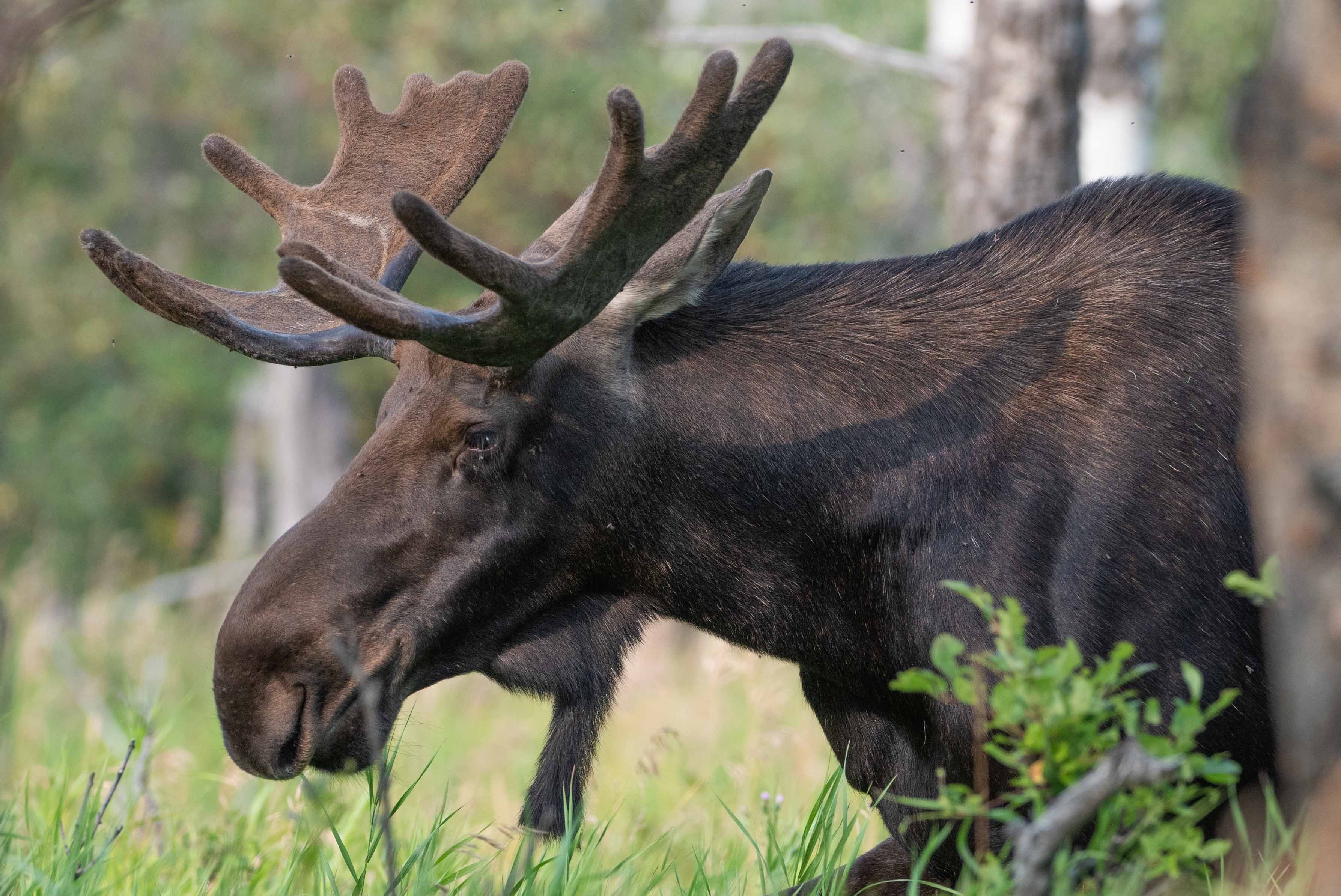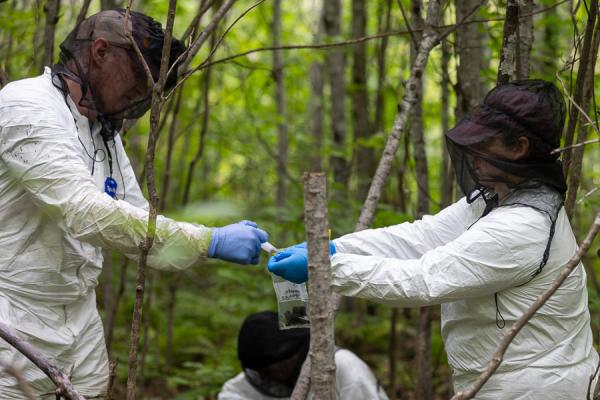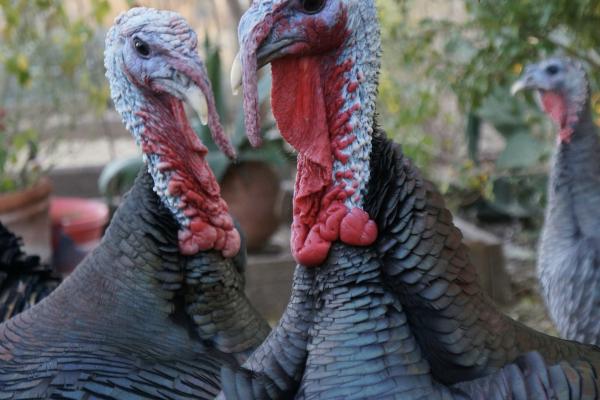Newly funded: Understanding the shifting environmental factors affecting moose
March 22, 2021

As another touchpoint in a lasting relationship between the University of Minnesota College of Veterinary Medicine (CVM) and the Grand Portage Band of Lake Superior Ojibwe, a team of CVM researchers led by Tiffany Wolf, DVM, PhD, recently received more than $70,000 from project led by Seth Moore, PhD, director of biology and environment at the Grand Portage Band, to continue assisting the tribal nation in investigating moose habitat and population health in a changing climate. Moose are the primary subsistence species for the Grand Portage Ojibwe and the subsistence hunt is essential to the cultural and nutritional health of the band. Minnesota is among the few states in the country that host moose. And while the moose population in Minnesota has been in a steady state of decline since 2009, it has recently plateaued. A deeper understanding of shifting environmental factors affecting moose, such as increased deer populations farther north in the state and wolf-moose dynamics, remains of vital importance to the overall health of the species. Understanding the Minnesota population can also help researchers better understand the population’s dynamics in Isle Royale National Park, and vice versa. With this funding, the researchers will continue work that has been years in the making to help scientists at Grand Portage with on-reservation and 1854 Ceded Territory activities related to moose habitat use and wolf translocations to Isle Royale National Park. The CVM team will help procure equipment and supplies, assist in animal capture and handling, compile data, perform preliminary analysis of health data, and conduct annual reporting. The funding began December 1, 2020, and will last through November 30, 2021.
Photo courtesy of Richard Lee on Unsplash


